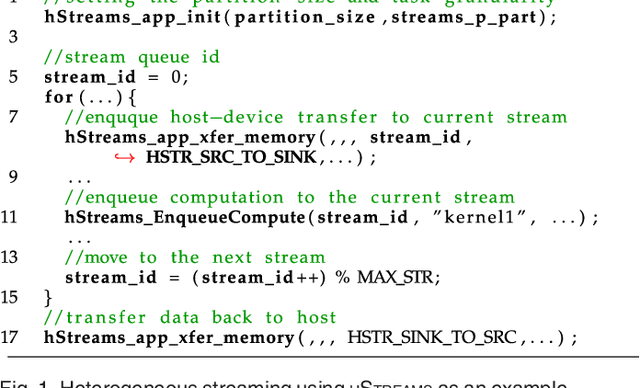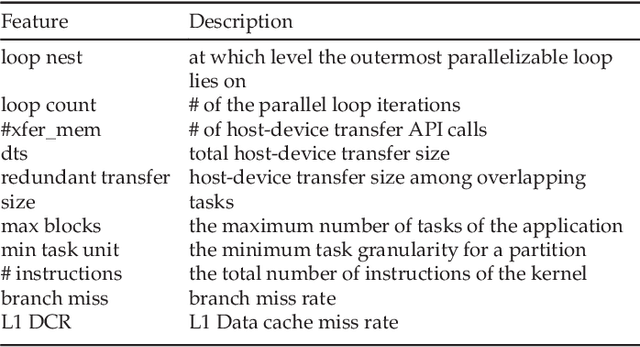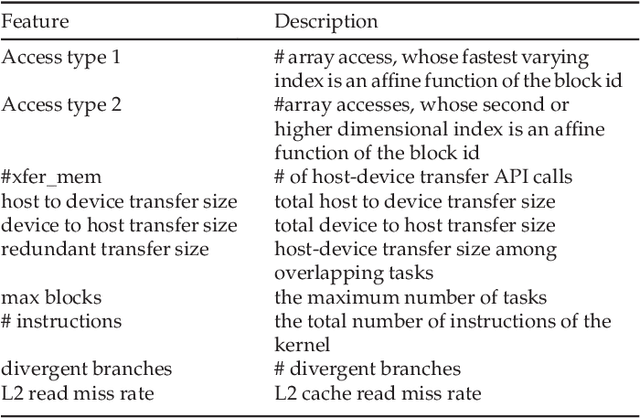Optimizing Streaming Parallelism on Heterogeneous Many-Core Architectures: A Machine Learning Based Approach
Paper and Code
Mar 05, 2020



This article presents an automatic approach to quickly derive a good solution for hardware resource partition and task granularity for task-based parallel applications on heterogeneous many-core architectures. Our approach employs a performance model to estimate the resulting performance of the target application under a given resource partition and task granularity configuration. The model is used as a utility to quickly search for a good configuration at runtime. Instead of hand-crafting an analytical model that requires expert insights into low-level hardware details, we employ machine learning techniques to automatically learn it. We achieve this by first learning a predictive model offline using training programs. The learnt model can then be used to predict the performance of any unseen program at runtime. We apply our approach to 39 representative parallel applications and evaluate it on two representative heterogeneous many-core platforms: a CPU-XeonPhi platform and a CPU-GPU platform. Compared to the single-stream version, our approach achieves, on average, a 1.6x and 1.1x speedup on the XeonPhi and the GPU platform, respectively. These results translate to over 93% of the performance delivered by a theoretically perfect predictor.
 Add to Chrome
Add to Chrome Add to Firefox
Add to Firefox Add to Edge
Add to Edge